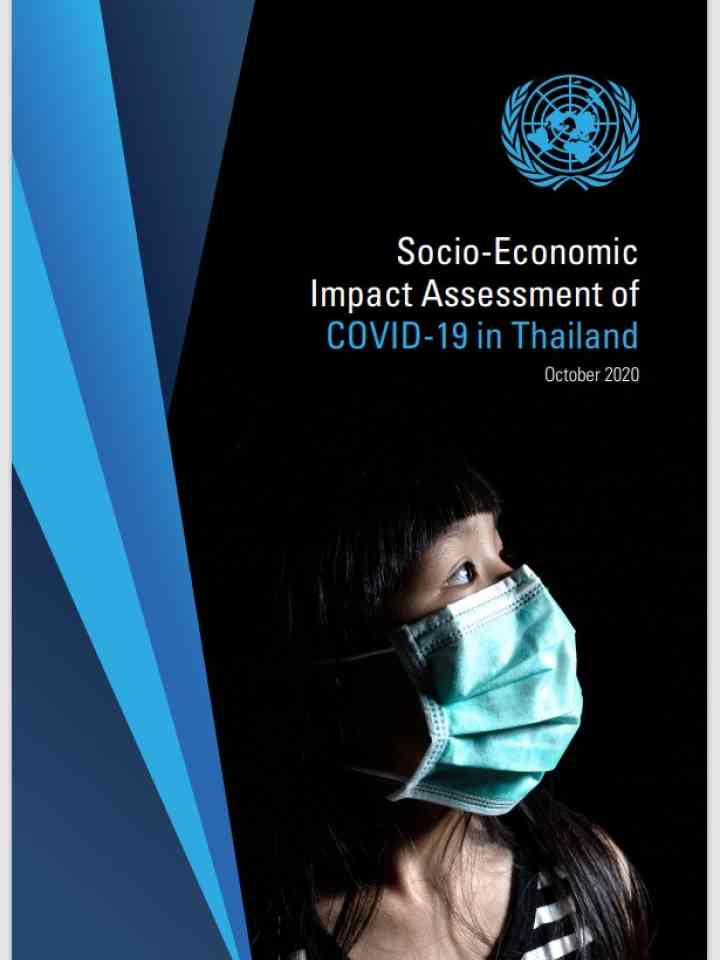Socio-Economic Impact Assessment of COVID-19 in Thailand
Thailand faces massive shocks from the pandemic. Despite marked success in controlling the outbreak and keeping rates of infection and mortality low, severe economic and social consequences are apparent. The economy is contracting and, with international tourism almost entirely stopped, employment has been hard hit.
The pandemic is affecting the poorest and most vulnerable the hardest. Among those affected are informal workers, which account for more than half of the labour force, and vulnerable groups such as people with disabilities and chronic illness. They have poorer access to job opportunities and face difficulties in getting government support.
This socioeconomic assessment of the effects of COVID 19 in Thailand analyses economic and social impact, as well as progress towards the Sustainable Development Goals. Prepared by the United Nations Development Programme (UNDP) and the United Nations Children’s Fund (UNICEF), and working with the National Economic and Social Development Council it looks at the implications of the pandemic on the macroeconomy, poverty, education, health, social protection, protection against violence, exploitation and abuse.
The assessment consolidates findings from an analysis on the economic impact of the pandemic by the Economist Intelligence Unit and a report on the social impact of the crisis by Oxford Policy Management. It also incorporates the results of rapid assessments and sectoral analyses by UN agencies and benefits from the advisory and technical support from the UN system in Thailand, the Asian Development Bank, and the World Bank.
Explore further
